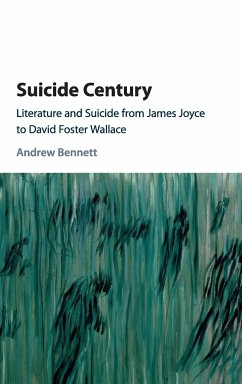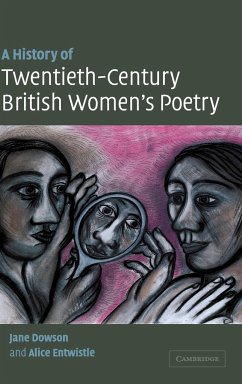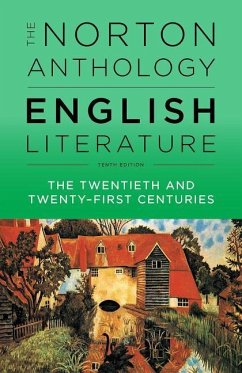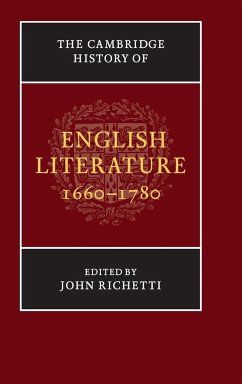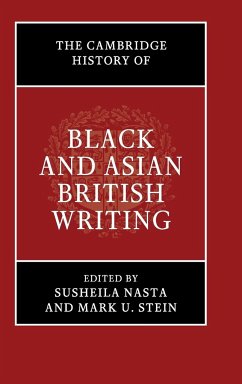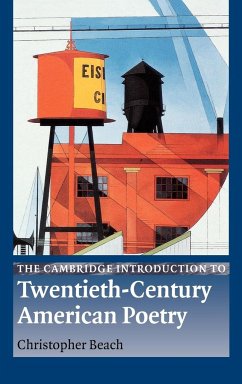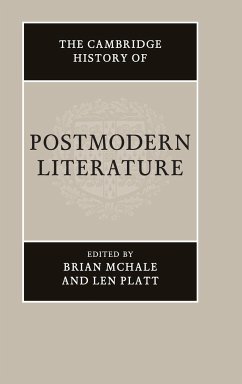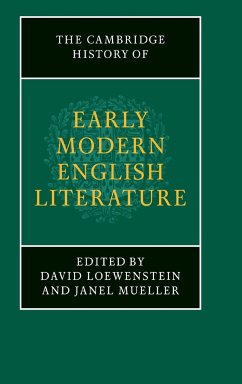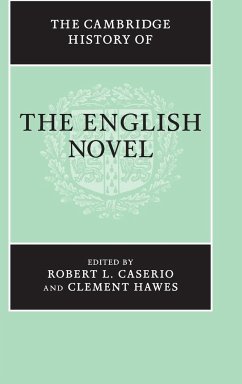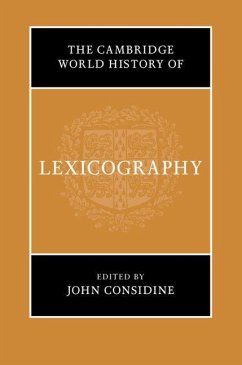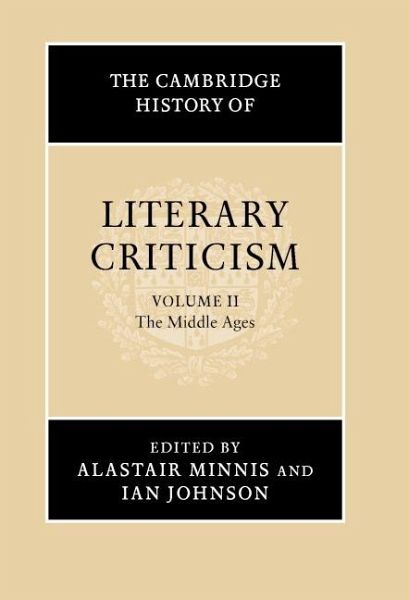
The Cambridge History of Literary Criticism
Versandkostenfrei!
Versandfertig in 1-2 Wochen
210,99 €
inkl. MwSt.

PAYBACK Punkte
105 °P sammeln!
This is the first-ever history of the literary theory and criticism produced during the Middle Ages that covers all the main traditions in Latin, the major European vernaculars and Byzantine Greek. Starting with the study of grammar and the formal 'arts' of poetry, letter-writing and preaching, it proceeds to offer a full description of the Latin commentary tradition on classical and classicising literature, followed by explanations of medieval views on literary imagination and memory and the ways in which certain texts were believed to achieve moral profit through pleasure. Subsequent essays ...
This is the first-ever history of the literary theory and criticism produced during the Middle Ages that covers all the main traditions in Latin, the major European vernaculars and Byzantine Greek. Starting with the study of grammar and the formal 'arts' of poetry, letter-writing and preaching, it proceeds to offer a full description of the Latin commentary tradition on classical and classicising literature, followed by explanations of medieval views on literary imagination and memory and the ways in which certain texts were believed to achieve moral profit through pleasure. Subsequent essays explore the diverse theoretical and critical traditions which developed in the vernacular languages, ranging from Medieval Irish to Old Norse, Occitan to Middle High German, concentrating particularly on Dante and his commentators and Italian humanist criticism. The volume concludes with an examination of the attitudes to literature and its uses in Greek Byzantium.





